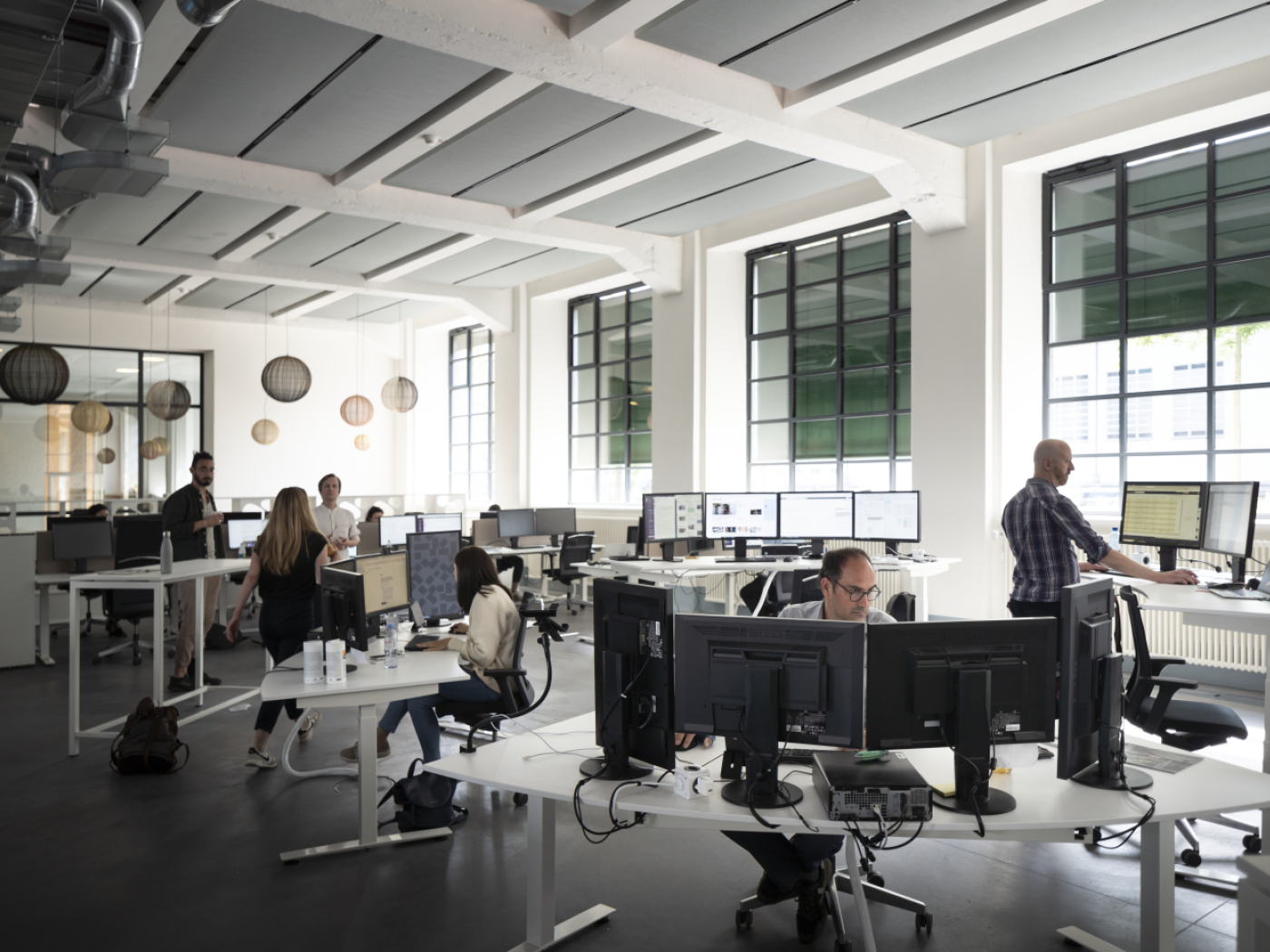
Work atmosphere more important than salary, say Swiss

For Swiss employees, the atmosphere at work is more important than the salary, according to a study. However, priorities differ greatly between the generations.
+Get the most important news from Switzerland in your inbox
The study, published on Tuesday by Swissstaffing, was carried out in collaboration with the JRC Zurich research institute.
Of 1,204 employees surveyed, 68% named a good working atmosphere as the most important criterion when choosing a job, ahead of salary at 63%. In addition, almost half consider flexibility in terms of time or location to be essential.
Generation Z also attaches great importance to salary and job security. According to the authors of the study, this need is fuelled by experiences of crisis and a volatile working environment.
+ Record number of home office jobs advertised in Switzerland
Employees over 50, on the other hand, are looking more for self-determination, flexibility and meaningfulness in their jobs. However, the 50+ generation grew up in a phase of economic upturn and social stability and were generally better paid than the younger generation, according to the study.
Desire and reality in everyday working life
However, a supplementary survey of 509 companies shows that wishes and reality often diverge. Only around half of the companies surveyed cited a good working atmosphere or fair pay as one of their key strengths. Instead, many rely on flat hierarchies, which, according to the survey, is less important for many employees.
In view of the shortage of skilled labour, Swissstaffing therefore advises companies to adapt their strategies. According to the Association of Swiss Personnel Service Providers, personnel service providers in particular could help to better serve the diverse needs of the generations and counter the labour shortage with flexible solutions.
This includes, in particular, investing in a positive working environment, competitive remuneration and flexible working models. “Those who neglect these factors risk increasing staff turnover and unfilled positions,” warns Swissstaffing.
Translated from German by DeepL/ts
How we work
We select the most relevant news for an international audience and use automatic translation tools such as DeepL to translate them into English. A journalist then reviews the translation for clarity and accuracy before publication. Providing you with automatically translated news gives us the time to write more in-depth articles. The news stories we select have been written and carefully fact-checked by an external editorial team from news agencies such as Bloomberg or Keystone.
Did you find this explanation helpful? Please fill out the short survey below to help us understand your needs.
Don’t miss your chance to make a difference! Take our survey and share your thoughts.

In compliance with the JTI standards
More: SWI swissinfo.ch certified by the Journalism Trust Initiative






























You can find an overview of ongoing debates with our journalists here . Please join us!
If you want to start a conversation about a topic raised in this article or want to report factual errors, email us at english@swissinfo.ch.